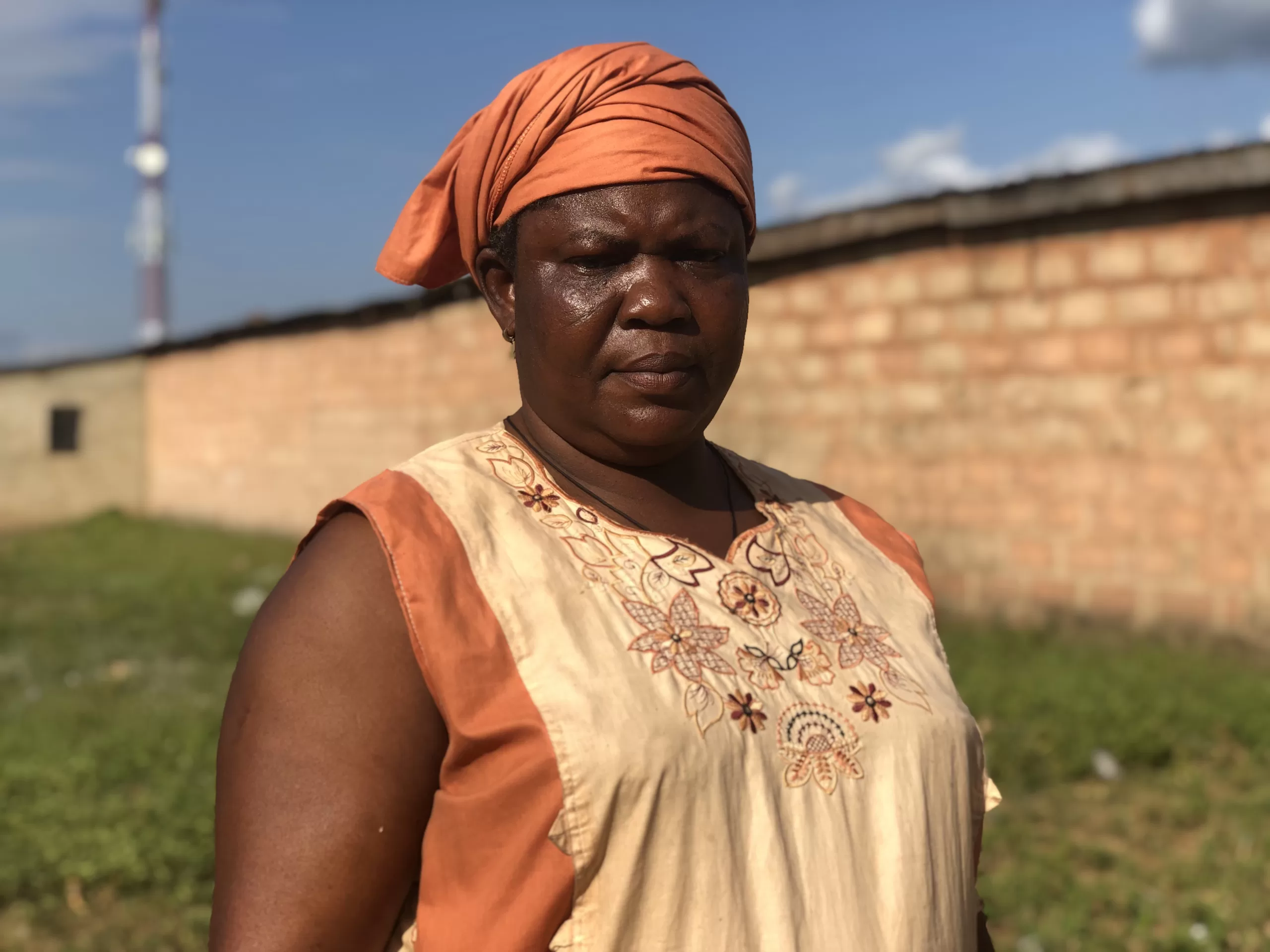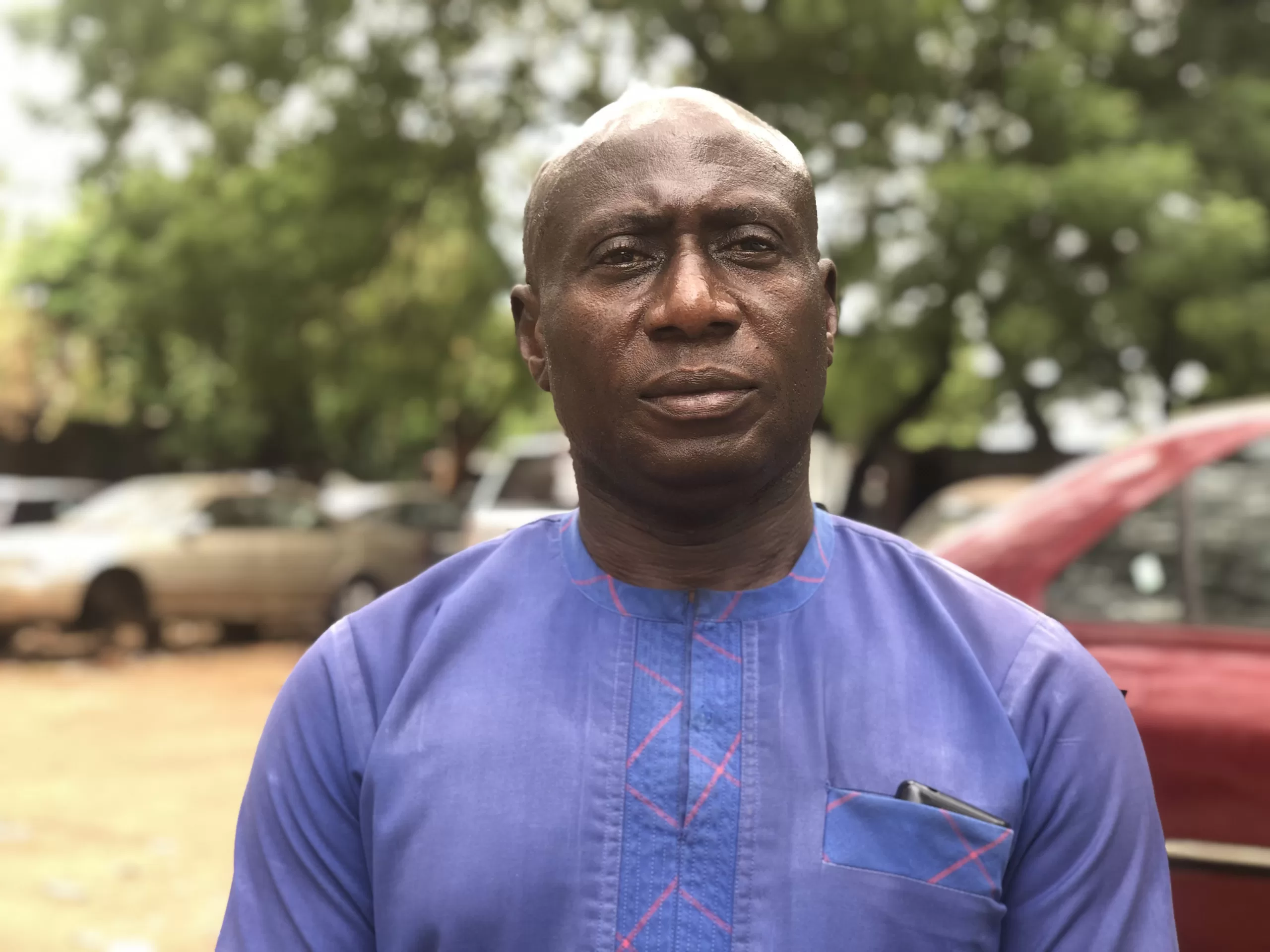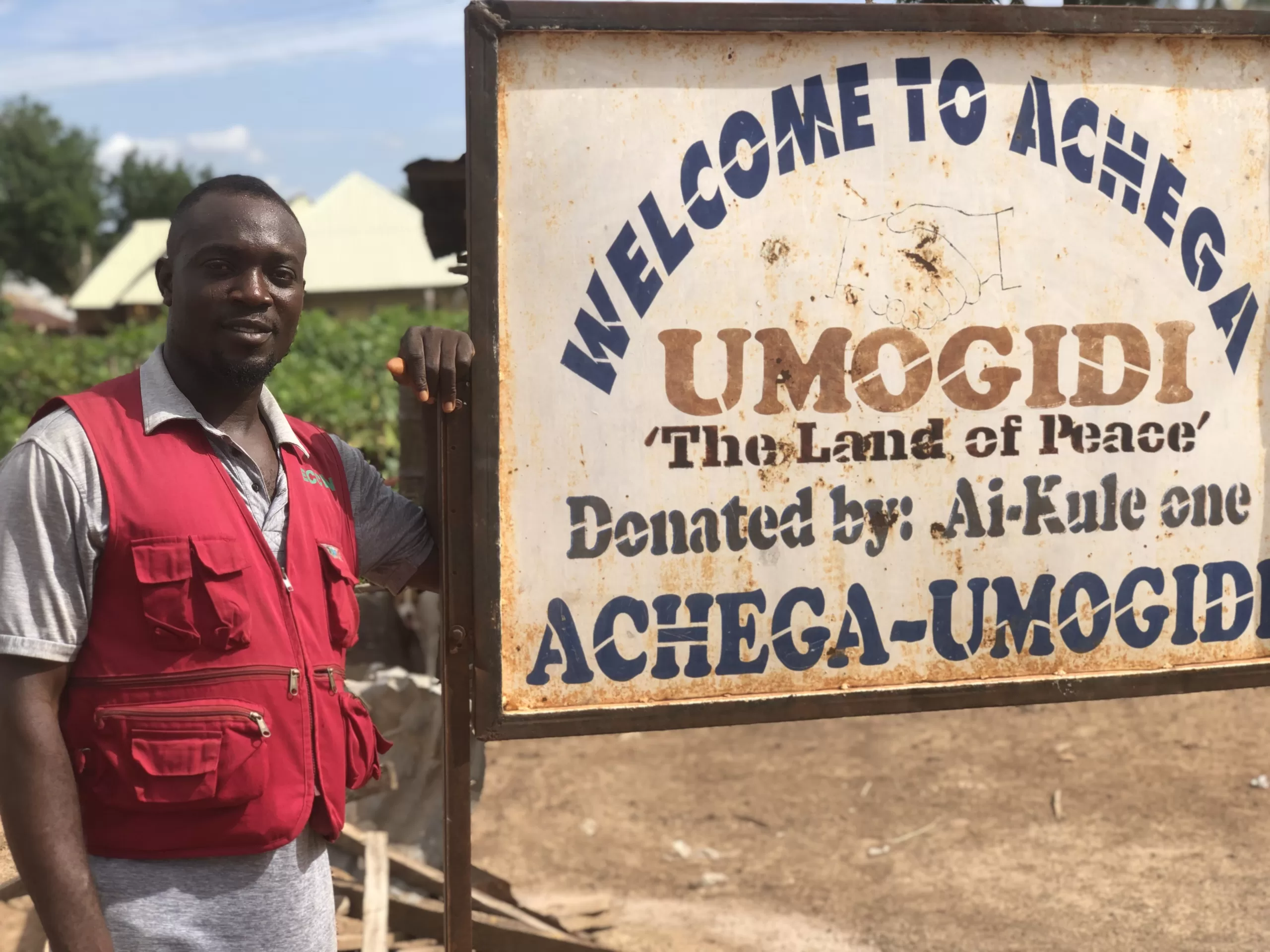In the rolling hills of Nigeria’s north-central region, the Umogidi, a community in Benue State, once thrived in peace and harmony. The lush farmland boasted bountiful harvests, and the idyllic landscape drew visitors from far and wide. But one day, everything changed. The sound of gunfire shattered the calm of the village, and terror spread like wildfire.
Militias, notorious for their unrelenting attacks on farming communities, had arrived. Armed with sophisticated weapons, they descended upon the Umogidi community with a fury that left able men powerless and trembling.
“We were caught unaware, and chaos quickly ensued. Men, women, and children were brutally slaughtered,” Bako Eje, chairman of the Otukpo local government area (LGA) where Umogidi is located, lamented.
In the blink of an eye, the once-thriving community lay in ruins. The locals who had managed to survive had fled into the nearby forest, fearing for their lives.
Those who were left behind lay lifeless in the streets, discarded like trash. The attack had left a trail of destruction in its wake, and the survivors were left reeling in shock and disbelief.
The attack on the Umogidi community in Entekpa ward in the Otukpo LGA of Benue state on April 5 was just one of many that have occurred in recent times across the Idoma ‘nation’ and, of course, Benue state as a whole.
Farming communities have been persistently under attack, leaving a trail of death and destruction in their wake..
The Back Story
As far as people like Edwin Obiaje, 61, the Egila of Umogidi, can remember, there had never been a fight between the Umogidi community or any of the four communities of the Entekpa ward of the Otukpo LGA and the militiamen who community members described to be predominantly ethnic Fulani and herders
“What ensued was a total shock to us”, he said.
“We are aware that the militiamen have sacked and pursued our nearby Gwer LGA communities of Mbappa, Ikande, etc. and made those places their permanent locations even till now.”
“But we never knew; they had plans to also drive us away to have the land for themselves.”
“We are farmers; everyone in Umogidi is primarily a farmer. There are few others who know how to maneuver and get other things done that fetch them money—like frying akara and cooking at the village market – in addition to their farming,” Obiaje explained.
“All of a sudden, we saw them feasting on our farms. At first, it was just intimidation at gunpoint for those who confronted them.”
“And because they had sophisticated weapons, it is unreasonable to fight them.”
“It was an unprovoked attack”
“On the fateful afternoon of April 4, 2023, they stood at our junction and began robbing people of their motorbikes and macheting farmers who were unluckily close by. That day, three community members were gruesomely murdered on their farms.” Obiaje continued.
“Our people scampered for safety. Women, children—they all ran for their safety to nearby bushes, and others were as far as Adoka, a suburb of the Otukpo LGA.”
“The Chairman of Otukpo LGA, Ejeh Bako, mobilised the military personnel to the community the next day, which was April 5, to see how security could be beefed up in the community So that we can at least take one or two things as we vacate the community because we had the feeling that they would still come back.”
“But the military didn’t stay long. The community, through the LG chairman, begged them to stay, at least for a night, or wait until the people that were killed are buried, but one Major A. Awuah, the Commandant of the 72 barracks, Otukpo, explained that they can’t stay for the night, especially since he hasn’t received a command from his superiors, and that he would be unable to account for his men if anything happens to them.”
The Chairman of the Otukpo LGA told Awuah the local government would cater to their needs for their time spent there, but the major did not oblige and left with his men.
Mr Bako Ejeh, the chairman of the Otukpo Local Government. Photo credit: Jairus Awo/ICIR
Bako sobbed as he narrated, “On that fifth of April. Around 3 p.m. About 49 minutes after the military left and we were at the burial of the first three persons that were killed, they came, and launched another attack on the community and this time killed 52 persons; altogether, 55 persons killed”
“Because it was a burial, people, mostly men, who stayed back to bury their relatives and perform the burial rites were killed; people from other communities, like Police Inspector Samuel Otache from Upu community, were also killed. This was when my son was killed—a 32-year-old man with two kids and a wife.”
“He had run away like the others; unfortunately for him, he was chased by the militiamen on motorcycles and was shot dead after a long distance, Bako explained.
Reversed fortunes and aborted dreams
For Yefu Anebi, 34 years old and a mother of six, the trauma of the terrible experience has been a two-sided battle. She has been having a hard time believing that her husband will never be seen coming home with his broad smile anymore.
She reminisced about those old times when Adochai would always tease her about how “powerful her food made him marry her.”
“As tough as life was, doing things with Anebi Adochai over the years was a beautiful thing,” Yefu sobbed as she continued. “We didn’t always have it figured out, but one thing we always reminded ourselves of was the promise to get our children educated.”
“Six of them. Three were schooling outside our community, and three haven’t been to school because of their age and inadequate resources.”
“We would fantasize how, at old age, our children would in turn take care of us at old age after they might have made it through school,” Anebi said.
Anebi and her husband believed that education was the way to success. She had no formal education, and her husband was only able to get through secondary school, which was why they made the commitment.
She added, “Looking around us, all the people that have made it big are all educated. That is why we wanted our children to succeed”.
But Anebi is now afraid and pained that her children may never achieve the quality of dreams they had for them.
“Now that he’s gone, how do I cope? We didn’t have time to say goodbye to each other,” she lamented as she vowed she would not give up on her “family dream”.
Her earnest wish is for the government to resettle her and the children in the community where she can continue farming.
Like Anebi, Joy Ochoche, 29, lost her husband during the attack at Umogidi. It may have been just an attack for others, but for Joy, it was another chapter of pain revisited.
“One thing I have cherished in the last ten years have been taken away from me,” Joy sobbed, “To me, life is never fair”
“I lost my parents when I could barely afford anything for myself. The agony, struggling through life until I met my husband, whom I had been married to for ten years, was heartbreaking, and then this attack just brought the whole memory back,” she wept, as she asked rhetorically, “Where do I go from here?”
Now, Joy, orphaned at a young age, is battling widowhood, and hunger, and struggling to raise three children.
She knew that if she returned to the community, she could only do farming, the main occupation there. However, her prayer is that she will have the capital to start petty trading, like selling rice.
Joy has gone back to her hometown in Adoka, Otukpo, where she said she “sees her parents’ grave every day,” and that makes her sick, as she put it.
The sorrow in the community is not limited to just Joy and Anebi; everyone across the four communities of Entekpa ward has had their share of the gruesome attacks.
Iyabor Edor, a 51-year-old mother of ten children, used to make N150,000 monthly as a food seller in the Umogidi market.
All of that is gone now; she is struggling with feeding her children and making ends meet where she is squatting with her friend at Adoka.
Iyabor said, “Apart from farming, which I do plant like 1,000 pieces of yam every year, I was successful with cooking back then at Umogidi, making up to N150,000 every month.”
“Now, I can’t even boast of N10,000 since the attack. Thanks to my friend, who is accommodating my family and is giving me some space to sell with her.”
“We are really suffering, the government should please come to our aid, I want to go back to my community,” Iyabor sobbed.
The head of the Entekpa ward, Oliver Inalegwu, expressed how devastated he was by the attack on his ward. The pain he feels is deep and complex, as he lost not only his valued possessions but also his sense of safety and security.
“These are not people we can even stand against, We don’t have the kind of sophisticated weapons to even match them. As the ward head, it is devastating for me. I am not even safe in my own community”, he stated.
Herders association reactions
Despite widespread claims and counter-claims about the ‘Fulani herders’ involvement in many attacks in Benue State, the regulatory body of the Fulani cattle breeders known as Miyeitti Allah Cattle Breeders Association of Nigeria (MACBAN) in the tate has consistently disassociated from these attackcalling on the state government to fish out bad elements instead of pointing fingers in the wrong direction.
MACBAN’s secretary, Ibrahim Galma, had in April condemned the killings in the state. ”We condemn the attack in totality. We at MACBAN are working hard, We are working together with the All Farmers Association of Nigeria in the state as well as security agencies to make sure that peace and harmony are restored in the state. But bad people are still causing problems, killing here and there.”
“We are not in support of the killings. We are for peace, and we hope to give the new administration maximum support so that peace will return to the state.”
This has however not stopped fingers pointing at their direction as communty members insists herders are responsible for the attacks.
Adakole, a resident of Umogidi, said “We normally see them at our boundary grazing cattle with Ak47 rifles roaming. That fateful day, they came shouting ‘Allahu Akbar’, while shooting anything atsight.”.
“They are Fulani herders,” he claimed.
The head of community security, a retired army warrant officer, Peter Adaji could not contain his pain as he reminisced about his service in the military.
Adaji said, “I served faithfully to secure others until my retirement, but my community is under siege with no help.”
“As a community, we have set up a committee on security to enable our people to access nearby farms to gather their yams and other products. And that is why we are always here with our local hunter’s gun.”
The reporter observed that the men who remained at Upu, Umogidi, and Iwili communities during the field visit in May were noticeably armed with pump-and-shoot rifles.
“This is the one we can afford. It is a local hunter’s gun that we can, at least, use to save our heads before we can run away,” the head of the community security guards said, adding, “It is very ineffective, but we can’t keep running away from our land.”
On it’s part the Idoma National Youth Forum, a community-based organisation, said it is working “hand in hand with the Ochidoma palace, stakeholders, and security agencies across all the local government areas to improve the security situation in the LGA.
The forum expressed its support for the new Och’Idoma (paramount ruler of the Idoma nation) in his call for an emergency security crusade in Idoma land.”
According to its president, Adakole Inalegwu, “We have also been instrumental in the mobilisation of relief materials and basic services as interventions for IDPs and affected communities.”
Benue volunteer guards’ response
The Otukpo commander of the Benue State Community Volunteer Guard Emmanuel Inalegwu, said that the Guards deployed men to the attacked community after he confirmed the deaths of over 52 people, including ‘Uncle’, the local government chairman’s son.
The commander said, “Although there was no uniform volunteer guard from the Umogidi community prior to the attack, the ongoing recruitment is attracting volunteer guards from the community.”
The state government’s response
Although the people of Umogidi, Upu, Olakpoga, and Iwili communities of Entekpa ward were attacked on different occasions in April, the common thing is that these communities are bearing the brunt of this tragedy.
This particular attack in Entekpa Ward and subsequent reports took place at the peak of the change in government from Samuel Ortom’s to Hycinth Alia’s.
The former government had said it was tackling security, and the Special Assistant on Security to Ortom, a retired lieutenant colonel, Paul Hemba, in a phone conversation in May, said that “the security personnel, police, and community vigilantes in the location were there, and anyone who is ready to return to these communities should return.”
Meanwhile, the Alia-led administration, which commneced after may 29 has said it has no room for insecurity to thrive in the state.
In his inaugural speech when he took the oath of office, he said, “As your Governor, I am committed to working with security agencies and the Federal Government to ensure the safety of lives and property in our state. We will also work tirelessly to address the root causes of insecurity, such as poverty, unemployment, and social exclusion.
A few months after the attack in Entekpa, another attack occurred in the communities of Akpuuna and Diom in the Ukum LGA, which Alia described as a “heinous crime and a grave sin against God and humanity.”
According to Tersoo Kula, the governor’s chief press secretary, “the governor directs security agents to arrest those behind the unlawful act and bring them to book.”
However, it is unclear at this point what sustainable step the governor has taken to quell issues of insecurity that are different from the usual “order to bring to the book.”










